As the UK government has instructed the nation to stay at home and only venture out for specific, essential reasons in light of the Coronavirus (Covid-19) situation, many of us are being encouraged to park our cars if we can. Some owners of Toyota hybrids might be wondering what will happen to their car during long periods without use, particularly when it comes to the level of charge in the batteries.
The reassuring news is that no difficult car maintenance is necessary. However, there are some tips that, if followed, can help ensure your Toyota remains in tip-top condition during an extended layoff.
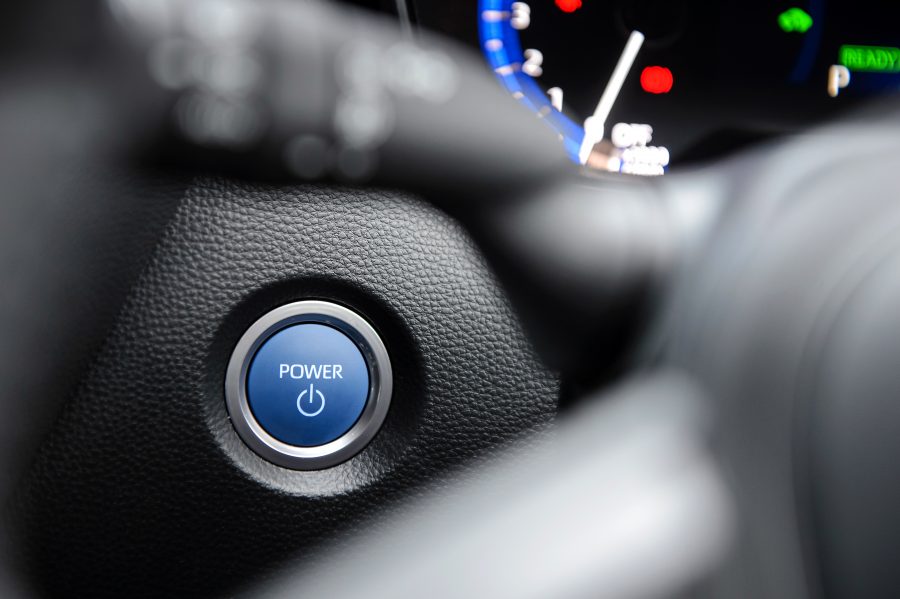
To recap, Toyota hybrids generally contain two batteries: a 12-volt battery (which powers systems such as the headlamps and audio) and a high-voltage hybrid system battery (which supplies the power to start the combustion engine and drive the electric motors).
The simplest way to maintain charge in both of these batteries is to simply go through the normal start procedure: press the ‘Start’ button with your foot on the brake and ensure the ‘Ready’ light is illuminated on the dashboard (you don’t have to keep your foot on the brake thereafter, but ensure your vehicle’s transmission is in ‘Park’ and the parking brake is engaged).
We recommend you put the car in ‘Ready’ mode for about 60 minutes before switching it off again and repeat the process at least once a week, providing you can carry out this procedure while adhering to the government’s advice regarding social distancing and Coronavirus (Covid-19). Please do not leave your car unattended when it is in ‘Ready’ mode.
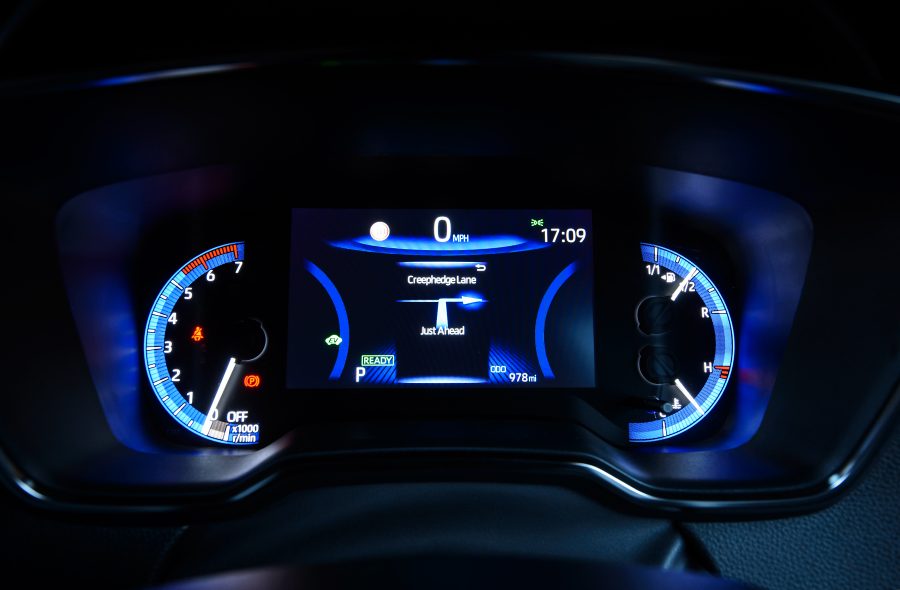
During the time that that car is in ‘Ready’ mode, you may hear and feel the internal combustion engine kick in; this is a normal part of the self-charging process. You might be tempted to switch on the radio to pass the time, or turn on other systems, but bear in mind these will consume small amounts of electrical power so it is preferable to leave them off.
Ensure the handbrake is on; there’s no need to go for a drive, although we must stress that this procedure should take place in a well-ventilated area – something to consider if you park your vehicle in a garage.
What if my Toyota isn’t a hybrid?
Our petrol and diesel cars only have a 12-volt battery, which provides the power to start the engine in addition to the other systems mentioned above. Regular start-up of the vehicle on conventional petrol and diesel engines needs approximately 20 minutes of running to put back into the battery what you remove on start up, so to maintain this battery we would suggest 60 minutes of running at least once a week.
Is there anything else I need to do?
Whether you own a hybrid or a Toyota equipped solely with an internal combustion engine, there are a few other easy car maintenance points that can ensure your Toyota hybrid remains healthy and happy during an enforced hibernation. Again, please adhere to the latest government advice regarding social distancing.
- Check the tyre pressures are fully inflated to the recommended level and top-up if necessary. It can be a good idea to repeat this process when you first drive your car after a long period of inactivity.
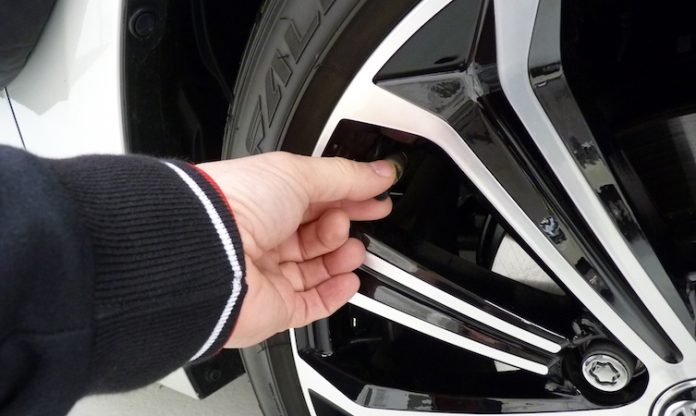
- Clean the car thoroughly inside and out. If you are storing your car in a garage, make sure the vehicle is completely dry before you put it away.
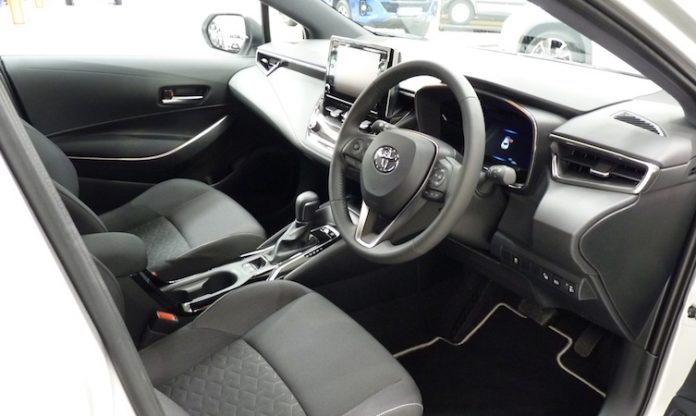
- If you do plan to store your car in a garage, ensure the chosen storage area offers plenty of ventilation. If the space is secure, you could consider opening one of the car’s windows a small way to ventilate the interior. If you do this, you might have to change your car alarm’s setting to prevent it setting off the intrusion sensor – please consult your car’s manual for more information.
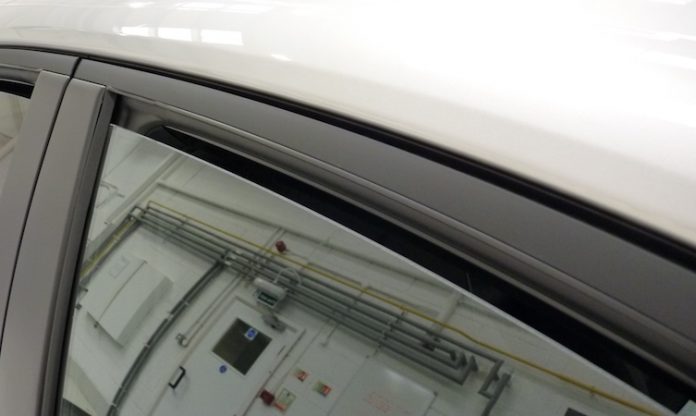
- It can be beneficial to leave the vehicle with the parking brake disengaged to prevent the brakes from binding, but only do this if you are certain the car is on level terrain and isn’t going to move. Ensure the transmission is set to ‘P’ for park and place wedges or chocks, if you have them, under the wheels.
- If you have a 12V battery trickle charger, or a solar panel charger, and are confident using them, then these are a good option to keep the battery fully charged while the vehicle is stationary for a period of time.
- If your vehicle is equipped with smart entry and start but the system isn’t operated for a long time, a battery-saving function will automatically be activated to prevent the electronic key battery and the 12-volt battery from being discharged. Battery depletion in the key is minimised by stopping the electronic key from receiving radio waves. On many models equipped with this system, it is possible to manually put the key into battery-saving mode, so please consult your car’s handbook for more information. If you aren’t planning to drive your car for a long time, consider putting the smart key in a safe place and not carrying it around with you in your pocket. This will prevent the car from ‘waking up’ unnecessarily should you happen to walk near it in your garage or driveway.
- If the vehicle will be kept on private property (such as inside a garage) for the duration of its storage, you could consider applying for a Statutory Off Road Notification (SORN). This informs the DVLA that the car is off the road and you will receive a refund of any remaining full months of tax. However, you won’t be able to drive your car legally until you tax it again, so it is only advisable if you are positive you won’t use your car for a long time. You can read more information about how to SORN your car here.
Read more Toyota GB’s latest statement on the Coronavirus (Covid-19) situation
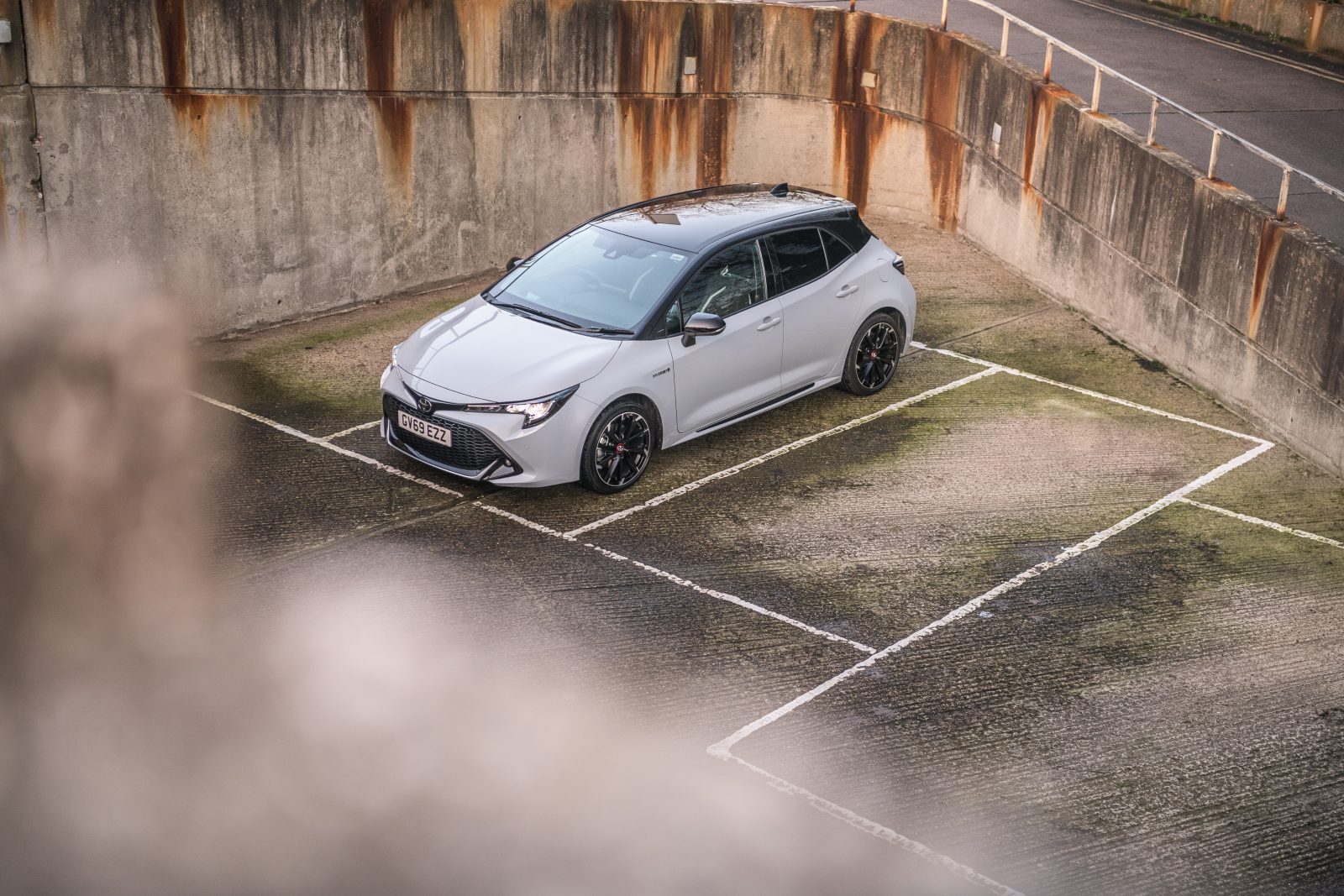
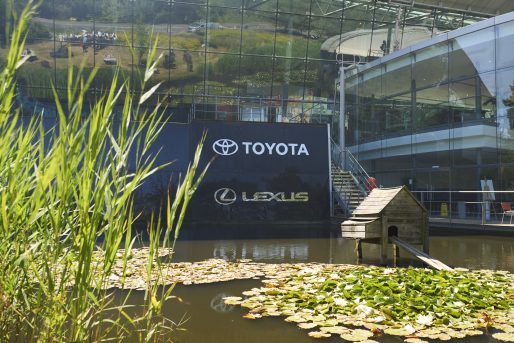
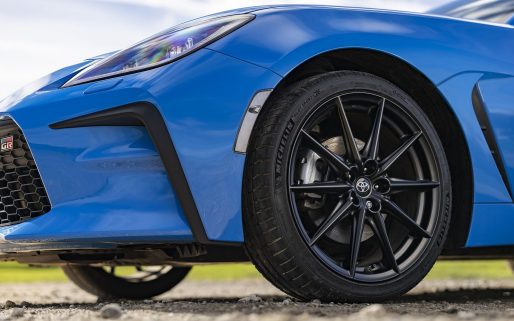

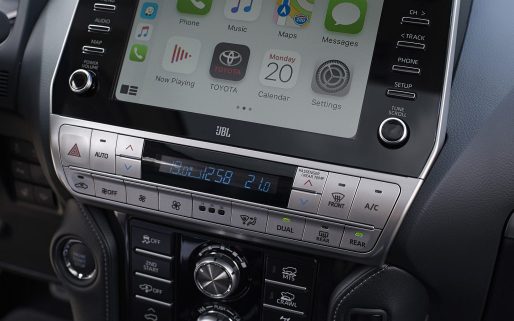
Hi my name is Steve. For 18 years I worked at the Burnaston site where the Auris and the Avensis were made. I have the same problem on my 17 reg Auris Hybrid estate, that is the battery going flat after 1 day of not being used. Toyota have a philosophy of Kaizen–continuous improvement–so I am surprised that this is an ongoing problem, which I am sure could be easily fixed. I had an Avensis estate automatic before this and the battery never let me down over 8 years and the original battery lasted for 7years. This was a larger battery so that could be 1 countermeasure. Also if as stated on this forum ,the traction battery supplies charge to the 12volt battery ,why can this not supply it to start it, surely only a software mod. Surely suggesting to run a car designed to be economical for an hour to charge it is a silly idea. As a quick fix a cheap charger clipped to the battery in the boot which is easily accessed and only takes a few minutes is ok.
Hi Steve,
Thanks for your many years of service and hard work. We’re sorry to hear about your vehicle.
We’d recommend contacting your nearest centre, so they can test the battery and look at replacing it.
Alternatively, you can contact our customer relations team for further assistance here: https://www.toyota.co.uk/help-centre/email-us
Thanks.
Hi James,
Thanks for your comment. We’re really sorry to hear that you’ve been experiencing a problem with your C-HR battery.
If you would like to raise this further, we would recommend getting in touch with our Customer Relations team, who are best placed to offer advice and support.
They can be contacted here: https://www.toyota.co.uk/help-centre/email-us
Thanks.
To all Hybrid owners I have a Rav Hybrid while I like the car the problem I have and by the comments a lot of other drivers have is my 12v battery keeps going flat contacted my dealer informed my battery was ok. couple of days later after they had charged it up it failed to start again, informed like a lot of others I am not using the car enough, I am still covering the same mileage as before the lockdown no problem before, garage advised me to buy a solar panel charger which I did, waste of time £22 wasted purchased a starter pack which is used on a regular basis, I have also purchased a battery charger which I use after I have to use the starter pack, ok then until the car is not used for a couple of days, then the cycle stars again, made a comment on Facebook customer relations emailed me I explained the problem said they would get in touch with my dealership, they emailed me back with the same comments the garage had said to me, would not accept there was a battery problem, but reading these comments there is, I have dealt with Toyota for more than 45 years having had numerous vehicles and my last 5 cars being Rav’s with no problems, should Customer Relations read these comment don’t bother replying as You have a problem that you are not prepared to cure it. Sorry to say my next car will not be a Toyota
Whilst I’ve never had any problems with my 45,000 mile CT200h (effectively a Prius Gen 3), I thought I’d add a few comments.
I have only decided to preventatively maintain my 12v battery in the last few weeks or so, due to the vehicle’s age and cold weather (call it accessory battery anxiety! 😂).
Firstly, if anyone if thinking about using an intelligent battery tender whilst their car is not being used for extended periods, I’ve noticed that my particular battery tender will read 12.2v after being left on overnight… and it will not give me an analysis of the battery (ie weak/strong). Probably due to the fact that the battery is still connected to the car’s 12v system, and the intelligent battery tender detects this.
Of course, if the battery is isolated, the battery tender is able to properly analyse the battery and charge it at the correct rate – reading 12.7v the next morning, with a ‘strong’ light illuminated to indicate that the battery is a good one. As soon as it’s connected back to the car’s 12v system, the voltage drops.
So, I’m not sure that all trickle/tender chargers (or solar panels) mentioned above will be able to maintain they car’s battery in situ – if there’s power being drawn from the battery (by the car’s 12v systems) the readings will be different, therefore to maintain the battery, different parameters may apply.
Can someone more technical comment on this? Is there a knack to ‘intelligently’ maintain the accessory battery in situ (ie without isolating/disconnecting it)?
Perhaps it were felicitous for to Toyota to recommend or supply a kit that definitely works with all of their hybrids accessory batteries, without the need to isolate the battery. A simple plug & play kit would help a fair few owners keep their 12v batteries in good shape. 👍
Hi Oscar,
Thanks for your comment.
We’ve checked with our technical team and, although the 12V battery is connected to the vehicle, the current draw will be very low and shouldn’t affect the state of charge in the battery if it is left connected over a period of weeks normally. The current draw is usually less than 80mA.
Therefore using a trickle charger or solar charger will still maintain the battery condition, even with it connected to the vehicle.
The battery will still degrade over time and need replacing at some point, however the current draw during starting will generally not pull as much current from the 12V battery as a conventional petrol or diesel vehicle.
Thanks.
Thanks for the reply.
After various tests, the battery is coming up as ‘good’ in isolation…
…BUT whilst it’s connected to the vehicle after a full overnight charge, the action of opening the doors (therefore waking up the 12v system, interior lights and brake servo) drops the voltage from 12.6 to 12.2v. That’s a big drop – an indication that the battery is no longer a spring chicken, but also an indication of the load placed on the battery by simply unlocking it.
I think, going forward, all of the interior/puddle lights could be LEDs as standard; and the brake servo need only be actuated when someone actually sits in the driver seat (you can it hear actuate as you walk past the vehicle, or unlock the vehicle).
This would reduce the load on the 12v battery when stationery – minimising power loss when someone simply walks past their vehicle with their smart key in their pocket, or indeed unlocking the car in order to get something out of it (without the intention of driving it).
…or an easily accessible menu option for ‘long term parking’, which disables luxuries such as automatic interior lights, keyless entry, follow-me home lights etc, for those whom want to park their car for longer periods without drawing unnecessary power from the battery after it has been stopped.
Personally I’m not fussed about replacing the battery every so often, but I suppose, in the interest of sustainability it were better if those loads were reduced, in order to further extend the life of the accessory battery.
Best regards.
Hi Oscar,
Thanks for your feedback and suggestions.
We’ll make sure to pass this along to our product team.
Thanks.
Hi! Are the 12 volt chargers in the car live so that a solar charger would work?
Hi Rui,
Thanks for getting in touch with us.
Yes – you plug the solar charger into the 12v socket.
Thanks.
Hi I have a chr hybrid from burrows at Barnsley same problem if left more than 4 days won’t start they’ve had car in to check battery boosted it said it was ok just had a major service one week ago won’t start again and I’m unable to unlock the vehicle to try and jump start it again have tried the key from inside the fob to no avail? Toyota garage advise is to drive car everyday? And to get A A home start to gain access to the vehicle and start it !!!
Hi Eric,
Thanks for your comment. We’re sorry to hear this.
Infrequent use combined with short journeys may not allow the 12 volt battery enough time to fully charge, which may be what has happened here.
We recommend putting the car in ‘Ready’ mode for about 60 minutes at least once a week, or to take more frequent, longer journeys to maintain the 12 volt battery.
We mention a solar powered intelligent charger to maintain the battery if the car is not being driven for longer periods.
If you would like to discuss this further, we would recommend getting in touch with our Customer Relations team, who are best placed to offer advice and support.
They can be contacted here: https://www.toyota.co.uk/help-centre/email-us
Thanks.
Hi! Does running on ready mode deplete the high voltage battery? Thanks!
Hi Rui,
Thanks for getting in touch.
The ‘Ready’ light means that the car is turned on and ready to drive.
Thanks.
We have two hybrid C-HR which we have had for a year. Most of the miles this year have been from repeatedly taking to the dealership with flat battery issues. We are then told there is no problem with the battery. We can’t carry on doing this and despite loving the cars will have to get something more reliable.
Hi Gemma,
Thanks for your comment. We’re sorry to hear this.
If you’d like to discuss your situation further, our Customer Relations team are best placed to offer support and advice.
They can be reached here: https://www.toyota.co.uk/help-centre/email-us
Thanks.
I also have a brand new hybrid C-HR (purchased this year). Having seen the comments here about 12V batteries going flat so quickly, I’m now worried about a trip I’ll be taking in the next few months which will involve me leaving my CH-R at the airport for 2-3 weeks. I’ll be driving about 200 miles to the airport so will this be suffiicent to prevent the battery from going flat or am I at risk of coming back to a dead car ?
Thanks
Hi Richard,
Thanks for your comment, and congratulations on your new C-HR! We hope you’re enjoying it so far.
On your drive to the airport the READY light will have been on and carrying out the necessary charging process on the way.
Combining this with regular maintenance by following your service schedule should mean your car will be okay to leave for a few weeks at a time.
However, if you are concerned about leaving it unattended for a longer period of time you could consider using a solar powered intelligent charger.
Thanks.
We have a Toyota Yaris cross 6 months old done over 5 ,000 miles , done 137 miles to the airport left it for 2 weeks the battery was flat as a pancake , rung Toyota AA I’m classed as priority ( weak immune system ) they took 4 hours to come out and jump start our car , not happy Toyota garage told me this is normal as the car wasn’t used for 2 weeks I will definitely NOT buy another Toyota ever again if they had pay me a good price for the car I would have took the money and got a reliable car , all I hear is lie after lie from the garage from the begin I asked the question at the time off buying can I leave it for 2 weeks when we go away and it will start 1st time like all my other vehicles ( second hand ) had done so their answer was YES. one very unhappy Toyota owner
This is clearly a problem for everyone. It honestly doesn’t make sense that Toyota make a small 12V battery which won’t hold charge for 3 weeks, and then if it gets left it gets ‘damaged’ so it acts up all the time and has to be replaced. I have a 4 year old Prius. A year ago we went away for just three weeks and came back to a completely dead battery (other car was totally fine, and other cars in the past never had issues). Got it jump started, took to Toyota dealer who replaced battery, blamed me for it and said I damaged the battery, I should have had a trickle charger if leaving it more than a fortnight. Rescue men and other mechanics all said that this was garbage; modern cars don’t need that. So I felt really angry about being blamed so complained and battery cost was refunded. So fast forward to Covid (with a new battery), drove car occasionally but due to small matter of actually being ill with Covid and shielded hardly drove it and never went far when I did. (New) battery flat again – got it jump started and after that it kept dying in spite of being driven around every 2 days. Jump started again and again and went to dealer who (surprise!) blamed us for not driving it enough and said we had damaged the battery by hardly using it and suggested we need a trickle charger. We were SO unimpressed we objected so ‘out of goodwill’ we had battery replaced without charge. Who would ever make a car which needs to be driven a long way every couple of days and then tell us it’s our fault we don’t? Why can’t you fix this issue – like maybe use normal sized 12V car batteries which don’t get damaged so easily – rather than tell every customer they need a trickle charger or have to sit in their car engine running for an hour every week? I’d never have bought this car if I’d known this issue. Alternatively you should market these cars as ‘Please don’t buy if you might not drive it for more than a week or ever get sick or (perish the thought) go on holiday.’
Hi Jacinta,
Thanks for your comment. We’re sorry to hear that you are unhappy both with your car and the service you received at one of our dealerships.
If you would like to discuss this further, we would suggest contacting our Customer Relations team.
They are best placed to offer any necessary support and advice, and they can be contacted here: https://www.toyota.co.uk/help-centre/email-us
Thanks.
I have experienced exactly the same problems with hybrid Toyota Corolla. Told by Toyota dealer I should not use the car just for small shopping trips, so patronising! Battery has been changed once, same free – of charge but problem with dead battery continues. Ridiculous for a new car. Don’t buy
Hi Kate,
Thanks for getting in touch. We’re sorry to hear this.
We do recommend putting your car in ‘Ready’ mode for about 60 minutes at least once a week, or taking longer, more frequent journeys to allow the 12V battery to fully charge.
Our Customer Relations team are best placed to advise and support should you wish to discuss your specific situation further, and they can be contacted here: https://www.toyota.co.uk/help-centre/email-us
Thanks.
I also have a 2019 RAV4 hybrid, and now regret buying it as I’ve also had battery drain issues nearly every month and I’m on first name terms with the local AA patrol. Putting car in “Ready” mode for 60 minutes at least once a week is totally impractical and utterly ridiculous in my opinion. I don’t have the time or the inclination to sit in a freezing cold car with everything turned off for an hour every week, the neighbours would think I’m mad! Doing unnecessary mileage to keep this puny 12v battery topped up is also ridiculous and defeats the object of having a hybrid, aren’t we supposed to curtail excess mileage and help save the planet?
I’m now liaising with my solicitor to formally reject the vehicle and then purchase another, more reliable one which will NOT be a Toyota. One thing is for sure, it will not be a hybrid or electric one!
All models of this poorly engineered vehicle need to be recalled and Toyota need to come up with a resolution.
Sorry, it’s my first and LAST Toyota!
Hi James,
Thanks for your comment. We’re really sorry to hear about your experience.
If you’d like to discuss this further, please contact our Customer Relations team here: https://www.toyota.co.uk/help-centre/#/iframe/https%3A%2F%2Fforms.toyota.co.uk%2Fcontact-us.
They are best placed to offer further support and advice.
Thanks.
I bought my RAV4 Hybrid 2020 model in July 2019. I bought it because of the excellent experience I have had with Toyota cars in the past. However, since buying the car, the 12v battery has gone dead three times. The first time was under 6 months and the second time about 9 months. On both occasions I had to call the AA for help and had the battery recharged later. I did not bother taking the car back to the dealer. It happened again three weeks ago (third time in 16 months) the 12v battery had discharged down to 3.5V overnight. In the morning, all doors were stuck in the locked position due to the dead battery. I had done a full day’s running in town the previous day (Approx. 20 miles running). This time I took the car to my Toyota dealer. The dealer returned the car after 4 hours and said that there is nothing wrong with the battery. (I already knew there was nothing wrong with the battery). I do not think they bothered to check if there is a power drain when the car is stopped or the cause for the frequent battery discharge. This is totally unsatisfactory.
Having now read so many comments by dissatisfied users on this website as well as other forums in UK and USA, I am now convinced that there is a design fault in this car which Toyota has to correct. From what I read, it appears that this is a problem with the entire Hybrid range of Toyota cars. Toyota should fix this problem as a recall.
To me, the solution is very simple. Either the 12v battery has to be replaced with a higher capacity one or if there is a power drain, find where it is and then correct it. The Toyota dealers obviously know that this is an ongoing problem which they cannot admit or help. I even suggested to the Toyota dealer that I would pay for a higher capacity battery, but they said this is the only battery recommended. I would personally like to replace it, but I cannot do so on my own as it may violate the warranty.
I have used many Toyota cars, VW’s, Peugeot and Ford cars in the past but have never had this kind of problem. You should not have to have trickle chargers or have to run for 60 minutes every two days to keep a new battery active. I am now completely dissatisfied with this car. It is totally unreliable and unfit for purpose. All doors remain stuck in the locked position due to a dead battery in the morning. I never know when this is going to happen next. I cannot rely on leaving the car at an airport if I go on business or holiday for a few days or weeks. So far, I have been fortunate to get AA assistance within one hour, but if it happens during holiday traffic period or heavy snow time, as usual, the AA roadside assistance will not respond at all. The worst is when the word gets round to motoring organisations and consumer association (Which? Magazine) and they report this as a problem, the used car value will drop to nothing and no one will want to buy any model of Toyota Hybrid let alone RAV4.
Please advise your Toyota dealers how to fix this problem. At least let them install a higher capacity 12v battery. I do not understand why Toyota has left this problem unresolved for so long.
Hi Jay,
Thanks for your comment. We’re sorry to hear about this.
If you would like to discuss your situation further, you can contact our Customer Relations team here: https://www.toyota.co.uk/help-centre/email-us
They are best placed to explore this further with you.
Thanks.
You could be literally be describing my exact experience. Battery was repeatedly going flat, every time I called the AA, they advised that there was an issue with the battery however Toyota always said it was fine. I have also been told to avoid short journeys which is annoying as:
1. My commute is a 40 mile round trip and I don’t do short Journeys
2. The hybrid car is specifically designed to be energy efficient in city driving and over short journeys. Telling people to avoid these journeys undermines the entire point of the hybrid.
My battery went flat 3 times, I bought a new battery myself as Toyota refused to cover it under warranty. The new battery was absolutely fine for 18 months however it’s started to go flat recently.
It’s concerning that this keeps happening, and as you say, means that you can’t trust the car to survive in a car park whilst on holiday.
It’s very stressful and I’ve actually missed work shifts because of it.
I’ve advised several friends against buying from Toyota for this reason.
Hi Andrew,
Thanks for your comment. We’re so sorry to hear about this.
Our Customer Relations are best placed to discuss your situation further with you should you wish to, and they can be contacted here: https://www.toyota.co.uk/help-centre/email-us
Once again, we are really sorry to hear that you’ve been experiencing this.
Thanks.
And my experience, out of the blue with a Corolla hybrid that I only bought in January and have been happy with until now, is so well described above that I don’t need to tell the whole story. Only left for a fortnight during the lockdown, did a long drive just before it started, yet the battery is now dead and has let me down three times this week already. Into the dealer today.
Speaking to the dealer on the phone, they’ve already started the “you aren’t driving it enough” spiel and suggesting the repair wont be covered under warranty. Which for a modern, expensive, brand new car is unacceptable. I checked the warranty paperwork and cannot see anything in the small print that would exclude early battery failure.
Not good.
Hi Ian,
Thanks for getting in touch with us. We’re so sorry to hear about your experience.
Our Customer Relations team are best placed to explore your situation with your further should you wish to, and they can be contacted here: https://www.toyota.co.uk/help-centre/email-us
Thanks.
The good news is that the dealer didn’t charge me anything. The bad news is that they didn’t do anything either, other than say that there is nothing wrong and sending me home with the same battery.
Unless the problem resolves itself by some surprising magic, which would be very welcome, I expect and fear that I will be back there soon.
Exactly my story: can leave Toyota hybrid for more than a week (stranded at the airport once), had to have a tow truck come out and jump the 12 v battery twice. What a piece of junk. Will never buy Toyota again.
Nearly all the above apply to me. Have not even had a reply from Toyota, as promised.
Surely ONE OF THE AFFECTED OWNERS IS A SOLICITOR! What about a class action?
I have bought a NOCO starter kit which works, but not very nice if you are dressed up to go out and need to raise the bonnet. So far apart from the aggravation I have missed a Covid Test appointment, due to the NOCO not seeming to function. I cannot leave the car for 60 minutes in the ready situation where it is parked in a communal car park.
Hi Michael and Pamela,
Thanks for your comment. We’re really sorry to hear this.
If you would like to discuss your situation further, you can contact our Customer Relations team here: https://www.toyota.co.uk/help-centre/email-us
They are best placed to offer further help and advice.
Once again, we are so sorry that you have experienced this.
Thanks.
I emailed them before leaving my comments, (we will reply in…) Why should I waste time again?
Hi Michael,
If you have your case reference number to hand, we will happily check on this for you.
Thanks